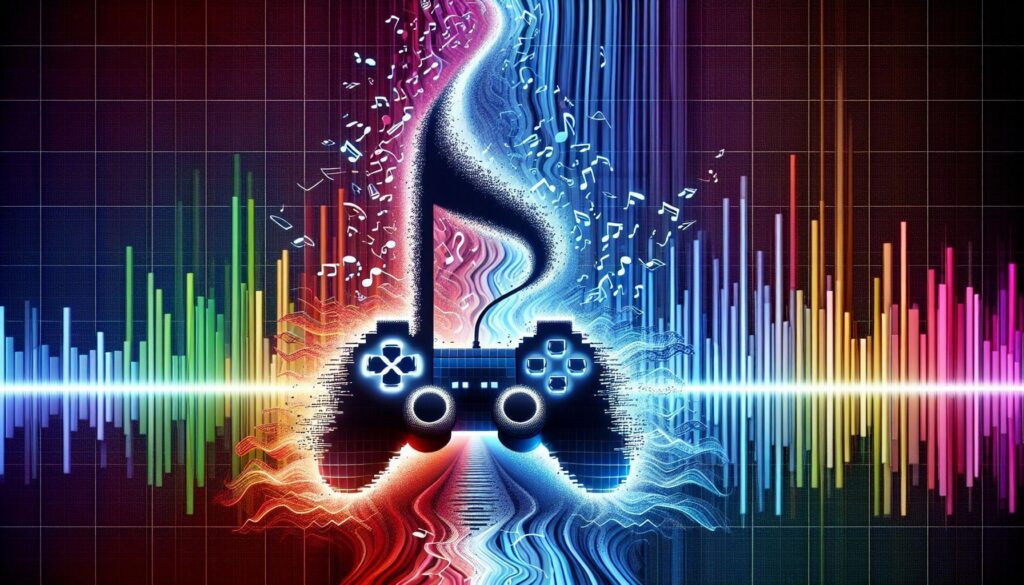In recent years, the boundaries between music, entertainment, and digital gaming have increasingly blurred, creating a new way of immersive experiences for audiences. This fusion is not merely a trend but a significant shift in how entertainment is consumed and produced. Whether it’s the adrenaline of a live-streamed concert, the strategic engagement of a game, or the thrill of placing a wager in an online casino, these industries are now overlapping in ways that redefine how we enjoy entertainment. As the lines between gaming, entertainment, and music continue to blur, platforms are evolving to provide exciting new experiences. For those interested in exploring the world of online casinos and the many options available, you can read the full post here.
The digital age has ushered in countless opportunities for cross-platform interactions, where a song can become a virtual concert within a game, and a game can inspire a hit soundtrack. This synergy has opened doors for creative collaborations that were once unimaginable. As these industries continue to intertwine, they offer a glimpse into the future of entertainment—one that is interactive, engaging, and deeply connected to the digital lives of its audience.
But how did we get here, and what does this mean for the future of entertainment? Let’s explore the dynamic shifts that are redefining the modern entertainment experience.
Music Streaming And Live Performances In The Digital Age
The rise of music streaming services has fundamentally transformed the music industry. Platforms like Spotify, Apple Music, and Amazon Music have made it easier for fans to access a vast library of songs at their fingertips, reshaping how music is consumed. This shift has not only changed listening habits but also how artists generate revenue. In 2020, streaming accounted for 83% of the music industry’s revenue in the United States, highlighting its dominance in the market.

Moreover, the COVID-19 pandemic accelerated the adoption of virtual live performances. With traditional concerts on hold, artists turned to digital platforms to connect with their fans. Virtual concerts on platforms like YouTube, Twitch, and Instagram Live became the norm, offering artists a new way to reach global audiences without the constraints of physical venues. For instance, Travis Scott’s virtual concert in the game Fortnite attracted over 12 million concurrent viewers, showcasing the potential of these digital performances.
These changes have redefined artist-audience interactions. Fans can now engage with their favorite artists in real-time, participate in virtual meet-and-greets, and enjoy concerts from the comfort of their homes. Additionally, this shift has introduced new revenue models, such as virtual ticket sales, exclusive content offerings, and brand partnerships, providing artists with diverse income streams beyond traditional album sales and concert tours.
The Rise Of Interactive Online Gaming
Online gaming has evolved into a cultural phenomenon, attracting millions of players worldwide. Beyond just gameplay, these platforms have become social hubs where music and entertainment elements are seamlessly integrated to enhance user experiences. Games like Fortnite, Roblox, and Minecraft have pioneered this trend, hosting virtual concerts and music collaborations that captivate their massive user bases.
One notable example is the virtual concert series within Fortnite, where artists like Marshmello and Ariana Grande have performed. These events merge gaming with live music, creating an interactive experience that transcends traditional concert formats. Players can engage with the performance, interact with other attendees, and even purchase virtual merchandise, blurring the lines between gaming and live entertainment.
These innovative approaches not only keep players engaged but also introduce them to new music and artists. By incorporating music into their platforms, game developers are creating a more immersive experience that resonates with their diverse audiences. As a result, online gaming has become a powerful tool for music discovery and promotion, further intertwining the worlds of gaming and entertainment.
Cross-Platform Experiences: Blending Music And Gaming
The integration of music and gaming has given rise to cross-platform experiences that appeal to younger audiences seeking dynamic and interactive content. This trend is evident in the way games are designed, with soundtracks and music collaborations playing a crucial role in enhancing gameplay. For example, the game Grand Theft Auto V features an in-game radio station with curated playlists, allowing players to discover new music while navigating the virtual world.

Moreover, music-themed games like Beat Saber and Just Dance have gained popularity, offering players an interactive way to engage with music. These games combine rhythm-based challenges with popular songs, creating an immersive experience that appeals to both music enthusiasts and gamers. This cross-platform approach not only attracts a wider audience but also fosters a sense of community among fans of both mediums.
The blending of music and gaming is not limited to in-game experiences. Artists and game developers are increasingly collaborating on projects that extend beyond traditional boundaries. For instance, the band Gorillaz collaborated with the game Pac-Man to create a music video that incorporates elements of the iconic game. Such collaborations highlight the creative possibilities that arise when music and gaming intersect, offering audiences a fresh and engaging form of entertainment.

